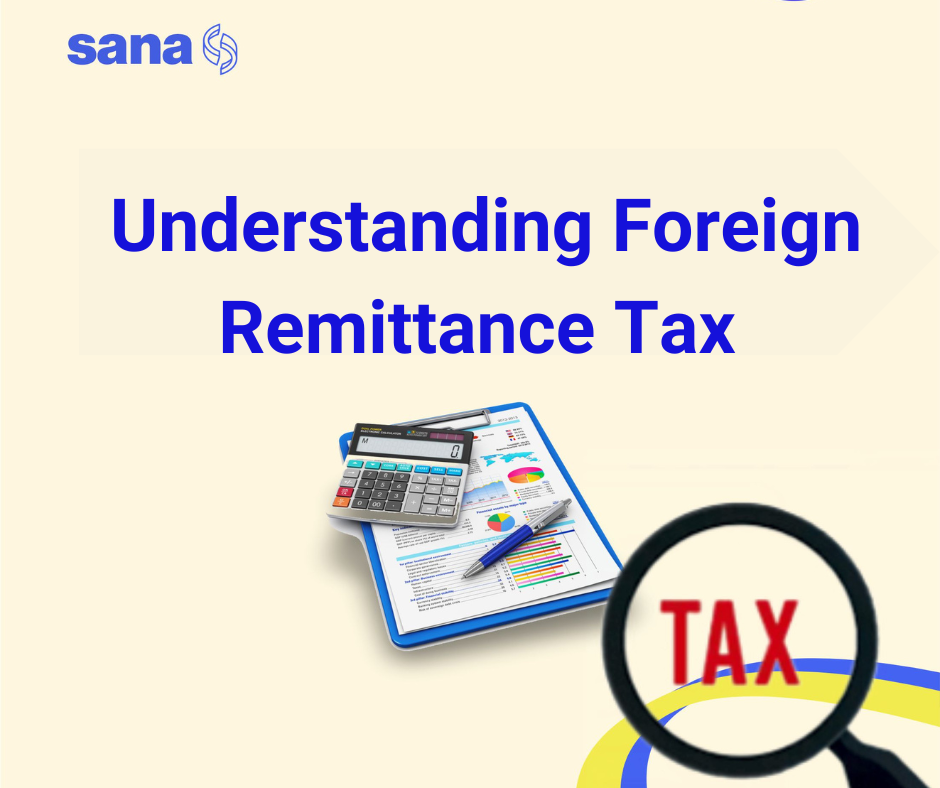Understanding Foreign Remittance Tax
This article simplifies foreign remittance tax, discussing its cost and cheap cross-border transfer alternatives.

Every country has laws that its citizens must obey concerning foreign remittance tax, and this also applies to Canada. As a foreigner working or earning income in Canada hoping to send money cross-border, it becomes even more important to know the associated tax charges or if there are any at all.
To simplify this, we discussed what you should expect when it comes to taxes on foreign remittance, highlighting cheap third-party alternatives to cross-border transfer.
How does Foreign Remittance Tax work in Canada?
When it comes to remitting money in Canada, you don’t need to pay any income tax or gift tax. However, you may need to pay capital profits tax if you’re receiving cash by selling off an asset. We'll break this down in subsequent paragraphs.
How does Canada Regulate Large Remittances?
Canadian governments do not tax or regulate most cash gifts received in the country. In fact, as a resident of Canada, the government allows you to receive as much money as you like without charges for any gift or capital gains tax. According to the law, you don't have to handle bulky legal documents after receiving your remittance.
However, there are exceptions. If you receive cash from disposing or selling your assets like bonds, stocks, real estate, vehicles, artwork etc, your cash may be liable to about 50% capital gains tax. It all depends on the conditions of your transfer.
Do I have to Report Large Transfers into Canada?
You must report any transfer of over $10,000 CAD to FINTRAC. However, the responsibility of reporting falls on banks and other money transfer agencies, not individuals. Financial institutions will also report any financial transactions that are considered suspicious, no matter the amount being collected.
Taxes When Sending Money from Canada
Sending and receiving money in Canada doesn't attract any tax. However, as a resident of Canada, you still have to pay your taxes properly and make the necessary declarations to avoid regulatory troubles. The court can impose huge fines on you or even add an extra tax bill to pay.
Failure to report to the appropriate authorities when your transactions involve large sums of money could have you fined up to $5,000.
If you receive a lump sum of money and don't reveal your capital gains or income, it will still reflect once your bank reports the transaction to CRA. This can get you in trouble.
Also, if the cash you are receiving from abroad is taxable, you should still inform the CRA about it. To make your compliance process easier, you can employ a tax professional to help you out. The rule applies for both inwards remittance and outwards remittance instances.
An overview of Gift Taxes in Canada
Sending and receiving gifts in Canada is absolutely free, however, you may have to commence paying gift taxes if you transfer gifts worth more than $11 million in your lifetime. You have to file a form for yourself if you have sent gifts worth more than $15,000 in the previous year.
Note that a gift is considered anything that has monetary value given to a person without expecting any goods or services. Even money itself can be a gift as long as you don't send it as payment for a particular service.
However, medical fees and monetary gifts to your spouse are exceptions. Endeavour to pay your child’s medical bills and school fees directly to the institution. Don't forget to notify the CRA of your transactions if they exceed $10,000.
How Can I Receive Money in Canada?
Depending on the service provider, the options you have to receive money are cash pickups, bank-to-bank transfers, as well as deposits to mobile wallets.
To pick up your money in person, you may have to provide a picture ID or a unique confirmation number to get your funds. However, if you already own a bank account with any Canadian bank or a reliable money transfer company, you may not need to provide this proof when you receive money.
How Much Can you Remit to and from Canada?
There is no specified limit when it comes to the amount of money you can send in Canada. It largely depends on the bank or transfer service provider, as they may place their funds transfer limits. Besides that, you can send as much money as possible.
If you want to send a large amount of money, you can make use of transfer service providers like SanaTransfer that do not put any limit on their transfers. However, KYC and AML checks will be carried out for huge remit sums.
What are the ways to Remit Money To and From Canada?
Here are some ways you can transfer money into Canada:
1. Bank Transfer
This is a very easy and straightforward way to transfer cash to Canada. However, this option is not cost-effective, as your transfer may attract high bank charges. Nevertheless, the advantage of using this option is that your money is well-secured since it automatically records all transactions in your account. Before you use the bank-to-bank transfer, consider these:
- The fees you have to pay
- The exchange rate used
- SWIFT fees may be subtracted from your bank account
2. Cash
This is another good option, especially if you frequently move in and out of Canada. However, not that it may expensive because it requires that you or someone else manually travel down to deliver the cash.
Additionally, you will need to consider how you can safely transfer a huge amount of money due to the danger of theft and the laws concerning bringing in or taking out a huge amount of cash from Canada.
3. 3rd Party Payment Provider
Another excellent option you can use is third-party money transfer providers. Essentially, third-party cash transfer providers can assist you to send direct bank transfers at a cheaper rate than any conventional bank. The best part is that you can do everything online, which makes it cheaper and less stressful. Some of the most prominent digital remittance service providers include:
a. SanaTransfer
SanaTransfer is one of the most reliable and affordable third-party remittance options for cross-border transfer. It offers zero hidden charges, easy, fast and secure payment services with better rates and faster payouts for international remittance.
b. Western Union
Western Union is a third-party instant money transfer agency that provides you with competitive rates and affordable transfer fees. You can use this platform to transfer funds from any nation to and from a Canadian bank account.
c. CurrrencyFair
CurrencyFair is another affordable way to perform cross-border transfers in Canada. There are zero hidden fees when sending funds with CurrencyFair, making it a popular choice among residents.
d. Wise
Formerly called TransferWise, Wise is a peer-to-peer transfer technology. This platform offers you a cheap and practical means of sending money globally, including in Canada.
e. Paypal
You can also send funds to Canada through your Paypal account. If you decide to use Paypal, you need to have two accounts, one should be in a Canadian bank, while the other should be in your domestic bank.
When transferring funds with third parties, check if there are any fees from your bank before you execute your transaction.
Bottom Line
The foreign remittance tax laws in Canada are not strict. In Canada, you can send and receive remittances without paying any tax for them. This makes it very easy for Canadian residents to send and receive funds to and from their home countries.
While you don't have to bother about any forms or extra charges, note that any transfer above CAD 10,000 is likely to get reported to FINTRAC by the bank or transfer agency as per standard AML procedures.
SanaTransfer offers easy, fast and secure payment services with better rates and faster payouts for international remittance. Sign up now to get started.
